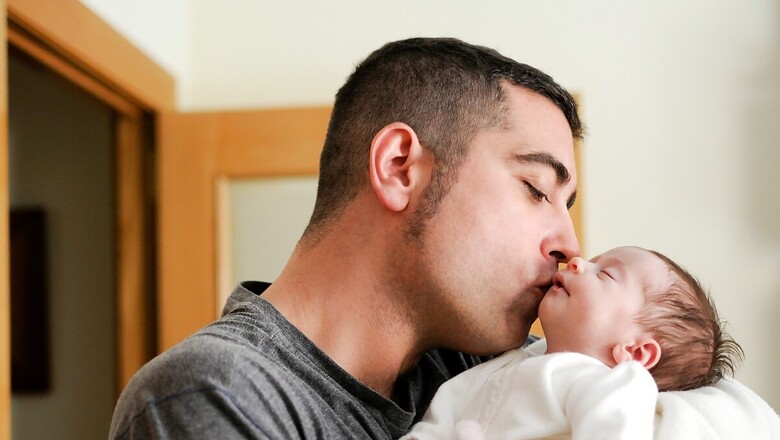
views
When we think of post-partum depression, the first thought is of mothers who have just given birth to their neonate child. However, it is important to recognize that fathers can also experience it. While the prevalence of PPD is higher in mothers, research suggests that fathers can also be susceptible to postpartum depressive symptoms. The transition to parenthood can bring significant emotional, physical, and lifestyle changes for both parents, which may contribute to feelings of sadness, anxiety, and exhaustion.
Dr Pritika B Gonsalves, Psychologist, Humm Care, says, “Despite not being largely brought on by these changes, postpartum depression is influenced by the hormonal and physical changes that mothers go through after giving birth. Fathers may have emotional and mental challenges during the postpartum period.”
For a long time, it was believed that only mothers could suffer from postpartum depression (PPD). However, recent research has shown that fathers can also experience PPD, although it is less common.
“It is important to note that PPD can affect fathers differently than mothers due to biological and psychosocial factors such as hormonal changes, sleep disturbances, increased stress, and adjusting to new parental roles. The father may experience emotional distress, decreased involvement in caregiving, strained relationships with their partner, and an increased risk of developing depression later on. For the child, the presence of PPD in the father can hinder bonding, affect the quality of parental interactions, and potentially lead to emotional and behavioral difficulties in the child’s development,” says Dr Amaey Parekh, mental health expert, Humm Care.
Mental health professionals and healthcare providers should be aware of the possibility of PPD in fathers and assess their well-being during the postpartum period. By recognizing and addressing PPD in fathers, we can provide better support and treatment options for the entire family.
Dispelling Myths
Postpartum depression is not just a problem for mothers. “Due to cultural expectations and gender preconceptions, fathers may be disregarded or misunderstood when it comes to this illness,” adds Dr Gonsalves.
Postpartum depression symptoms and signs
“Include melancholy, irritability, changes in food, sleep issues, a lack of interest in activities, and trouble forming a bond with the infant. It’s crucial to be aware of these symptoms and to get help,” states Dr Gonsalves.
Risk Factors
A number of things, such as hormonal changes, sleep deprivation, stress from work or finances, relationship problems, and a history of mental health problems, can cause paternal postpartum depression. By recognising these risk factors, fathers and their spouses can take proactive measures to lessen their effects.
Impact on the Family
“Paternal postpartum depression can deteriorate family ties and have an adverse effect on the general health of the family. A supportive atmosphere for parents and their child can be created by identifying the problem and dealing with it,” opines Dr Gonsalves.
Seeking Help
Fathers who believe they are suffering from postpartum depression should be urged to get help from a specialist. Supportive measures can help a lot in conquering this disease, including counselling, support groups, lifestyle modifications, and involving family and friends.
















Comments
0 comment